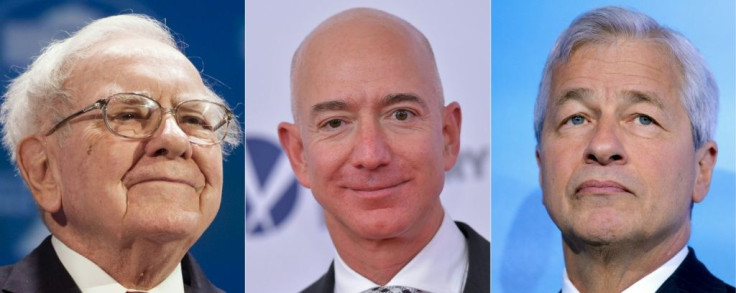Amazon, Berkshire Hathaway, JPMorgan Chase To Disband Health Venture
Amazon, Berkshire Hathaway and JPMorgan will disband Haven, the joint venture aimed at lowering health care costs for their US employees, just three years after launching.
The announcement Monday means the three major American companies admitted defeat in their attempt to address one of the most vexing and longstanding problems for employers and employees alike in the world's largest economy.
Haven said on its website that the venture would end in late February, although the companies plan to "continue to collaborate informally to design programs tailored to address the specific needs of their own employee populations."
The company did not elaborate on the decision and did not respond to a request for comment, but JPMorgan Chase CEO Jamie Dimon said the venture produced some success.
"We're proud of the progress the Haven team made exploring a wide range of healthcare solutions, including pilots at our company to make primary care easier to access and insurance benefits simpler to understand and easier to use," he said in a note to employees.
Jeff Bezos's Amazon, Warren Buffett's Berkshire Hathaway and financial giant JPMorgan Chase announced in January 2018 the plan to create a nonprofit health care plan to "provide US employees and their families with simplified, high-quality and transparent health care at a reasonable cost."
The trio aimed to become a disruptor in the health care industry just as Amazon has in retail, using their combined data, technology, buying power and customer contacts to improve delivery while cutting costs.
The companies did not specify how many people would benefit under the new program, but a source told AFP at the time domestic employees of the companies and their dependents likely amount to at least a million workers nationwide.

The US is the only major world economy that does not provide universal medical coverage to its citizens, and healthcare costs have spiraled upwards for decades, accounting for 17.7 percent of GDP in 2019, according to the Centers for Medicare & Medicaid Services.
About half of Americans get their insurance through their employers, while the rest depend on government assistance or are uninsured, according to data from the Kaiser Family Foundation.
Taming health care costs has been a priority for successive presidents, and likely will be on the agenda of President-elect Joe Biden, who takes office later this month.
His arrival in Washington will come after outgoing president Donald Trump tried and failed to convince Congress to abolish Obamacare, the system put in place by his predecessor that allowed individuals to access private medical insurance and provided other protections while trying to limit spiraling costs.
But he has managed to undermine it, reducing the timeframe allowed to enroll, cutting the advertising budget, and eliminating in a 2017 tax reform package the requirement that every person have health insurance or pay a fine.
In announcing Haven, Dimon said the new initiative would benefit employees and "potentially, all Americans" and analysts viewed it as a potentially promising expansion of Amazon's services.
The announcement at the time swamped health care stocks on Wall Street, but on Monday share prices of major insurers and pharmacies showed little reaction to the disbanding on a downbeat day for indices where the Dow ended 1.3 percent lower.
© Copyright AFP 2024. All rights reserved.





















